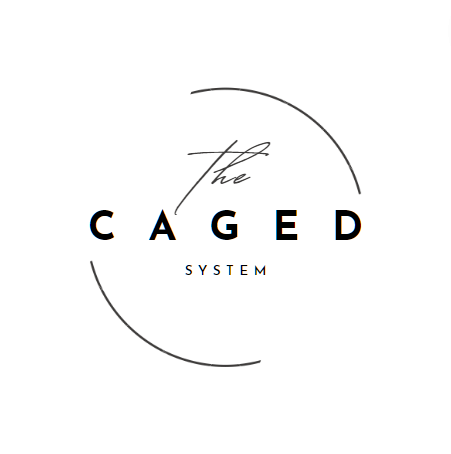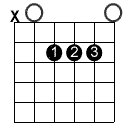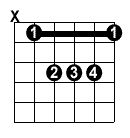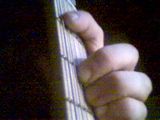You’ll want to create a barre with your first finger except you will not include the low E string.
Instead, we’re using the A string as our root.
A Major Open
| A Major Barred |
Fret/Chord Chart
You can determine the chord’s name when the root (lowest) note is played on the frets in the chart below.
| Fret | 1 | 2 | 3 | 4 | 5 | 6 | 7 | 8 | 9 | 10 | 11 | 12 |
| Chord | A#/Bb | B | C | C#/Dd | D | D#/Eb | E | F | F#/Gb | G | G#/Ab | A |
Alternate Fingering
Here is a popular alternative way of playing the A-style barre chord. It’s the same form with the exception of the missing note on the high E string. It is used a lot because it’s an easier fingering than the full barre chord.
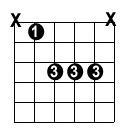
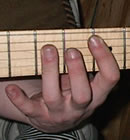
Exercise
Play the A-style barre chord on the first 12 frets starting on the 1st fret. Listen to this exercise in the audio example below. You may want to say the names of the chords as you travel up and down the fretboard to help you remember them.
